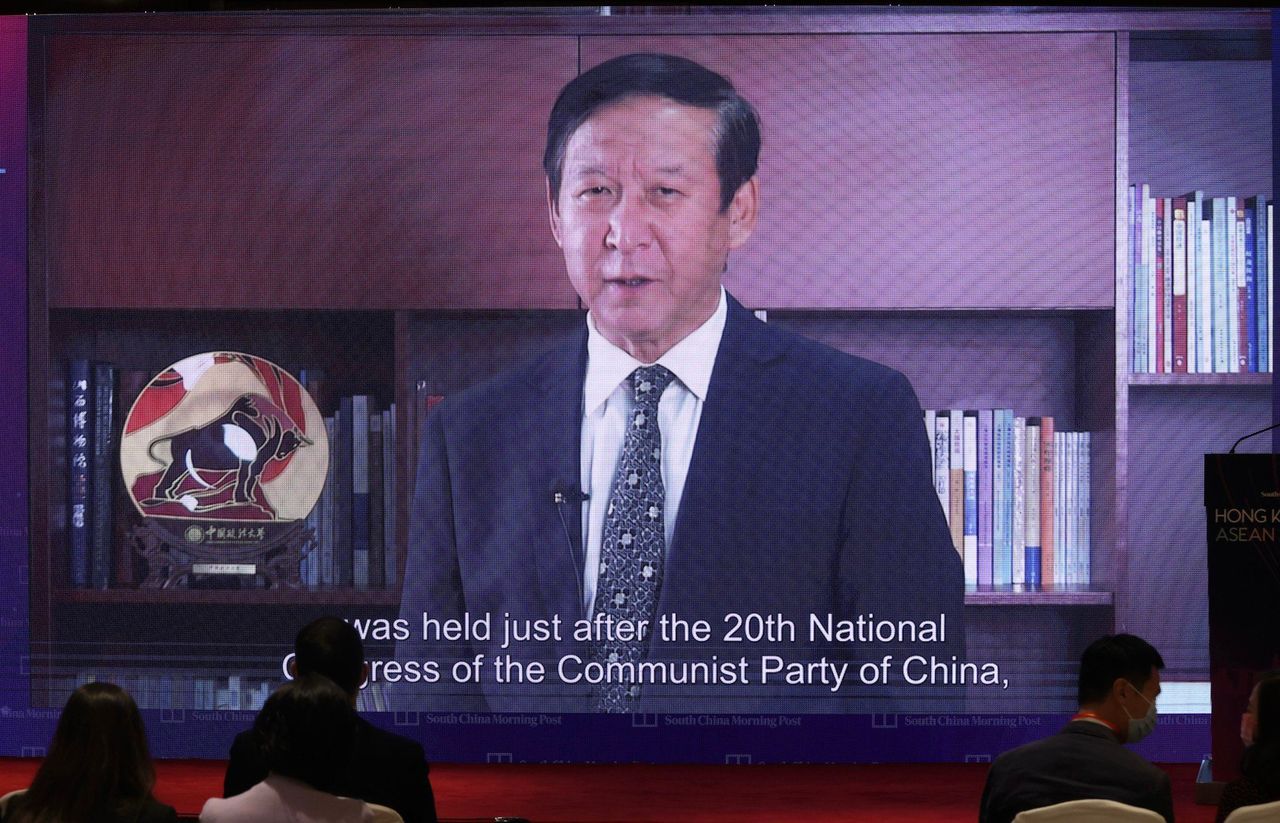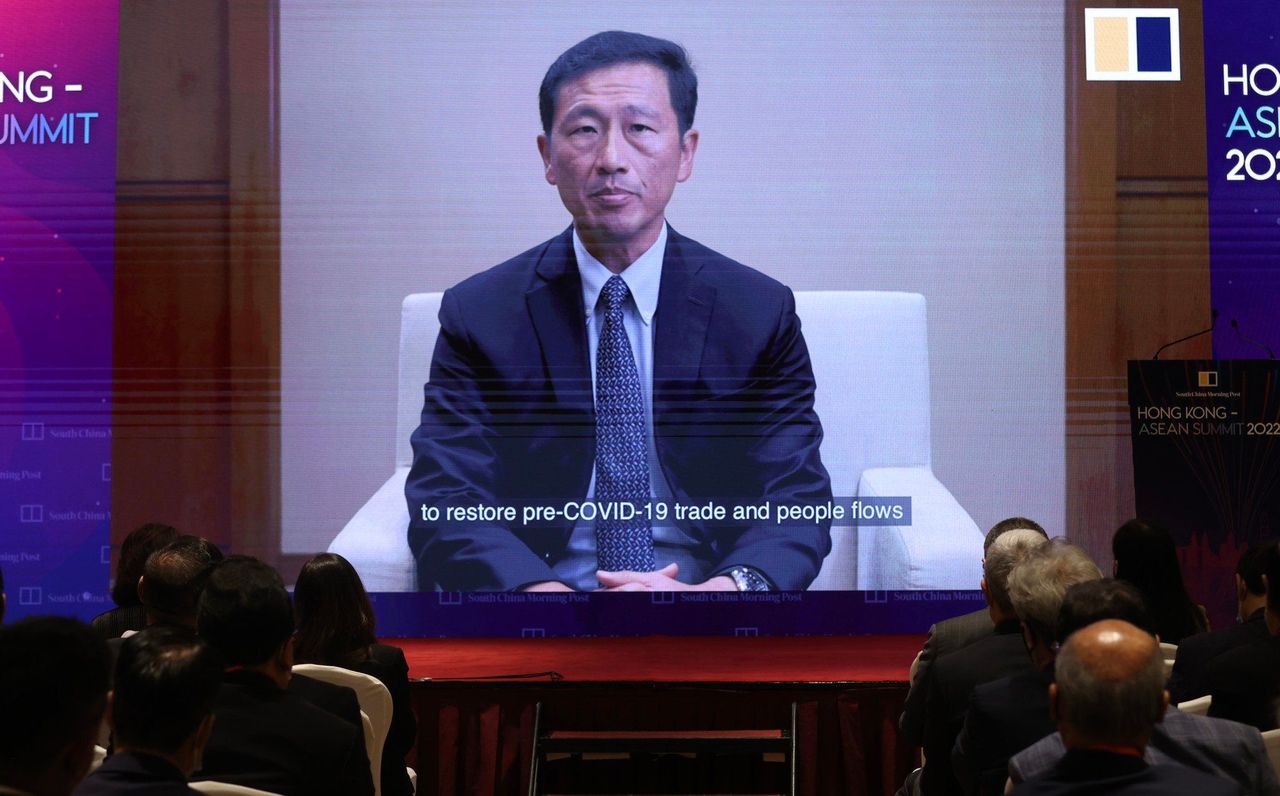Hong Kong News

Hong Kong’s bid to join RCEP will bind its economic future to Asean
Southeast Asia is Hong Kong’s most potent economic hinterland outside the Chinese mainland, and there is no reason for countries in the region to view the city as a “zero-sum competitor”.
That was the underlying message from top officials and commentators who participated in the inaugural Hong Kong-Asean Summit 2022 organised by the Post.
Yu Hongjun, a former deputy minister of the Communist Party’s International Department, said Hong Kong’s plans to join the sprawling Regional Comprehensive Economic Partnership (RCEP) pact comprising China and 14 other Asia-Pacific economies, would likely further bind the city’s fortunes to the Asean region.
The RCEP includes all 10 member states of the Association of Southeast Asian Nations (Asean). The bloc also has a separate free-trade and investment agreement with Hong Kong.
“With the free-trade agreement and the investment agreement between Hong Kong and Asean member countries coming into full effect, and Hong Kong’s application to join the RCEP agreement being approved, the economic and trade relations between Hong Kong and Asean will further develop,” Yu said in a keynote speech.
 Yu Hongjun, a former deputy minister of the Communist Party’s
International Department, delivers a keynote at the Hong Kong Asean
Summit 2022.
Yu Hongjun, a former deputy minister of the Communist Party’s
International Department, delivers a keynote at the Hong Kong Asean
Summit 2022.
Singapore’s Health Minister Ong Ye Kung, also speaking at the summit, offered a similar optimistic view on economic integration between Asean and Hong Kong, adding that Singapore “strongly supports” the city’s RCEP application.
As the pandemic situation stabilises, both cities should “fully re-establish the linkages between our trading, financial, aviation and shipping hubs to restore pre-Covid trade and people flows”, Ong said.
“Hong Kong’s relaxation of quarantine requirements for travellers is a welcome step in this direction,” he added.
Before the pandemic, Hong Kong was Singapore’s fifth-largest trading partner and seventh-largest investment destination, while Singapore was Hong Kong’s fifth-largest trading partner.
Ong, a key member of the “4G” group of ministers set to succeed Prime Minister Lee Hsien Loong and his contemporaries, said in his pre-recorded speech that the “popular narrative” about Singapore and Hong Kong was “to paint us as zero-sum competitors”.
“This is a narrow and inaccurate view. Rather, I think there is mutual symbiosis in the Singapore-Hong Kong relationship,” the health minister said.
Apart from re-establishing pre-Covid linkages, Ong suggested that the two cities could strengthen their partnership through collaboration in the Greater Bay Area, which he described as “at the frontier of China’s reforms and opening up”.
“Singapore is keen to partner Hong Kong in this endeavour. As former Guangdong Governor Ma Xingrui often tells me, Singapore is an integral part of the development of the Greater Bay Area,” he said. “In addition, Singapore will continue to play its part in fostering closer economic integration and deeper regional connectivity within Asean to build an open and inclusive regional architecture.”
 Singapore’s Minister for Health Ong Ye Kung delivers a keynote at the Hong Kong Asean Summit 2022.
Singapore’s Minister for Health Ong Ye Kung delivers a keynote at the Hong Kong Asean Summit 2022.
On Hong Kong’s reopening road map, Ong noted that the Post’s summit coincided with the Hong Kong FinTech week and the Rugby Sevens taking place this weekend.
Singapore and Hong Kong have taken divergent approaches towards Covid-19, with the Southeast Asian city state earlier this year embracing a “living with Covid” strategy. It has lifted travel restrictions and most other Covid-related measures including a virtual removal of the mask mandate.
Ong said he was glad to see Hong Kong opening up, adding that “it is never easy, having developed that sense of security with tight pandemic social restrictions and border controls”.
“Yet in our hearts we know that such stringent measures are not sustainable, especially for international cities such as Singapore and Hong Kong,” he added. “There needs to be resumption of travel for our economies to be viable, to be vibrant again.”
On collaboration in health sectors, Ong said Singapore and Hong Kong as international cities were “canaries in the mine”, as they were both very likely to be the first to encounter new variants of the coronavirus or other pathogens. “What we do in response is an important reference to the rest of the world,” he said.
Ong suggested that the two cities work together to strengthen detection of variants and analysis of the level of societal resilience to them. “Our findings will contribute towards the strengthening of regional and global surveillance systems against Covid-19,” he said.
Ong said Singapore was exploring a collaboration with the Chinese University of Hong Kong on a prediction model that could estimate the population-level immunity against new Covid-19 strains and their potential severity, based on their genetic make-up.
Thursday’s half-day summit also featured Alfredo Pascual, the trade secretary in Philippine President Ferdinand Marcos Jnr’s government.
Pascual underscored Hong Kong’s status as one of the Philippines’ top trading partners in recent times. He also recognised the city’s “unique role as a super-connector in the trade relationship between the Philippines and mainland China”.
“Given the close geographical proximity of our two economies, the export and import to and from our country to China are made easier through the Hong Kong trade route,” Pascual said.
He urged Hong Kong investors to consider investments in the Philippines, including in the health and IT sectors. He said: “The location of the Philippines as a gateway to other Asean countries makes our country an ideal complement to Hong Kong and mainland China businesses that seek expansion.”











